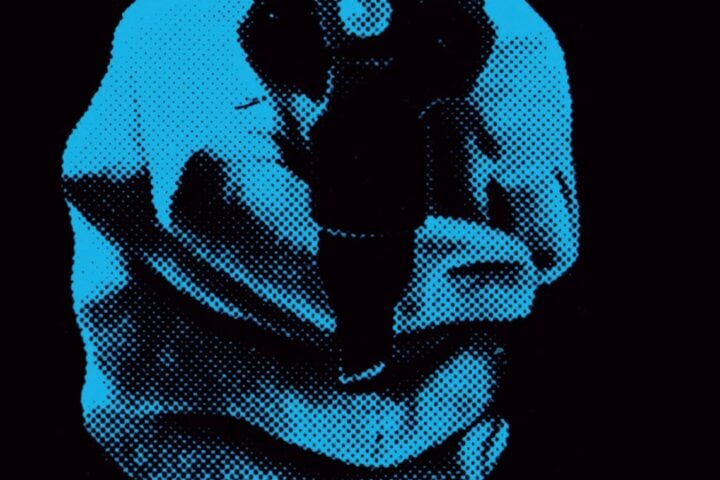A magnanimous examination of a marginal social milieu as much as it is a moody character study, Marcel Carné’s Hôtel du Nord isn’t nearly as dark (morally or aesthetically) as the noirish films that surround it in the French film director’s canon: Port of Shadows and Le Jour Se Lève. While some of the shots in the titular Paris hotel are intensely dark-hued, the cinematography isn’t as unrelentingly high-contrast as in those other films, which isn’t to say that DPs Armand Thirard and Louis Née don’t still know how to sculpt scenes with light to ravishing effect.
Hôtel du Nord is bookended with celebrations that emphasize the communal nature of the Hôtel du Nord, opening with a first communion party and concluding with Bastille Day festivities. The first scene also effectively sketches in the relationships between the working-class denizens of the hotel. Their company is broad-minded enough to welcome Raymonde (Arletty), the local streetwalker, though her pimp boyfriend, Edmond (Louis Jouvet), chooses to remain upstairs, aloof to the goings on below. The film hints here at some of the broader political events in Europe with the appearance of a young boy, a Spanish refugee, whom the hotel’s owners have adopted. He’s frightened by a sudden loud noise, which takes him back to the horrors of the ongoing Spanish Civil War.
When Renée (Annabella) and Pierre (Jean-Pierre Aumont), the young couple who are ostensibly the film’s leads, first appear in the frame, they stand at the far end of a long shot, reduced almost to silhouette. The room they request will soon become the site of an abortive suicide pact, brought on by the crushing forces of poverty and indigence, in which only Renée will be the victim. Pierre flees, only to turn himself in the next day. Renée is soon absorbed into the hotel’s populace, working as a chambermaid for room and board.
Scenes between Renée and Pierre at the prison bear the distinctive hallmarks of Fyodor Dostoevsky’s Crime and Punishment, not to mention its filmic incarnation as Robert Bresson’s Pickpocket. Pierre talks about guilt, death, and freedom—the latter of which he finds himself too weak to withstand. In this regard, the film positions Edmond as his double or secret sharer. Both of them are in love with Renée. They’re both artists of a sort: Pierre sketches, while Edmond takes photos. Edmond is also a career criminal who at one time snitched on his confederates, having undergone since then several distinctive changes in persona in order to evade them. And, in the end, it’s Edmond who’s strong enough to embrace his guilt and his own death, in a final act that’s pure existentialism before the fact.
In between these high dramatic nodes, the film is alive to the daily routines and domestic dramas of its supporting characters. These include a lockkeeper (Bernard Blier) forced to sell his blood to make ends meet, and a gay man, Adrien (François Périer), who’s portrayed entirely without prejudice, a remarkable thing in a film from this period. But then all the characters are social outliers in one way or another. It’s what gives the Hôtel du Nord its social cohesion. So it’s fitting that the film ends with a long shot on the massive set depicting the canal and street in front of the hotel. After Renée and Pierre are reunited, they simply walk out of frame on their way to an uncertain fate, while the camera lingers on the tattered remains of the Bastille Day revelry from the night before. Life, the film suggests, simply goes on.
Image/Sound
The Criterion Collection offers Hôtel du Nord in a new 2K digital restoration, and it looks simply gorgeous. Blacks are inky deep. There’s a pleasing depth and clarity to the image overall, really bringing out fine details in costume and décor. The French LPCM mono track nicely conveys the sonic dimension, allowing some of the more active elements (gunfire, firecrackers) to stand out, and satisfyingly delivering the lovely score from composer Maurice Jaubert, especially the carnivalesque sounds of the concluding Bastille Day celebration.
Extras
Included here is a 2022 conversation between filmmaker Jean-Pierre Jeunet and journalist Philippe Morisson about Marcel Carné’s approach to cinema, his career overall, and Hôtel du Nord in particular. What’s more, Jeunet gets to show off some of his copious Carné memorabilia. A TV episode from 1972, “Making Hôtel du Nord” opens with a long newsreel from 1938 to set the sociopolitical stage for the film’s events, then morphs into an intriguing set of interviews with Carné, screenwriter Henri Jeanson, and actors Arletty and Jean-Pierre Aumont that really delves into the filmmaking process. A 1994 documentary on Carné features several film historians and critics reviewing the legacy of Carné’s cinema. The liner notes feature an essay by Carné biographer Edward Baron Tusk that lays out the film’s social agenda.
Overall
Gorgeously shot and affectingly brooding, Marcel Carné’s Hôtel du Nord shows equal amounts of empathy for its occupants one and all.
Since 2001, we've brought you uncompromising, candid takes on the world of film, music, television, video games, theater, and more. Independently owned and operated publications like Slant have been hit hard in recent years, but we’re committed to keeping our content free and accessible—meaning no paywalls or fees.
If you like what we do, please consider subscribing to our Patreon or making a donation.

